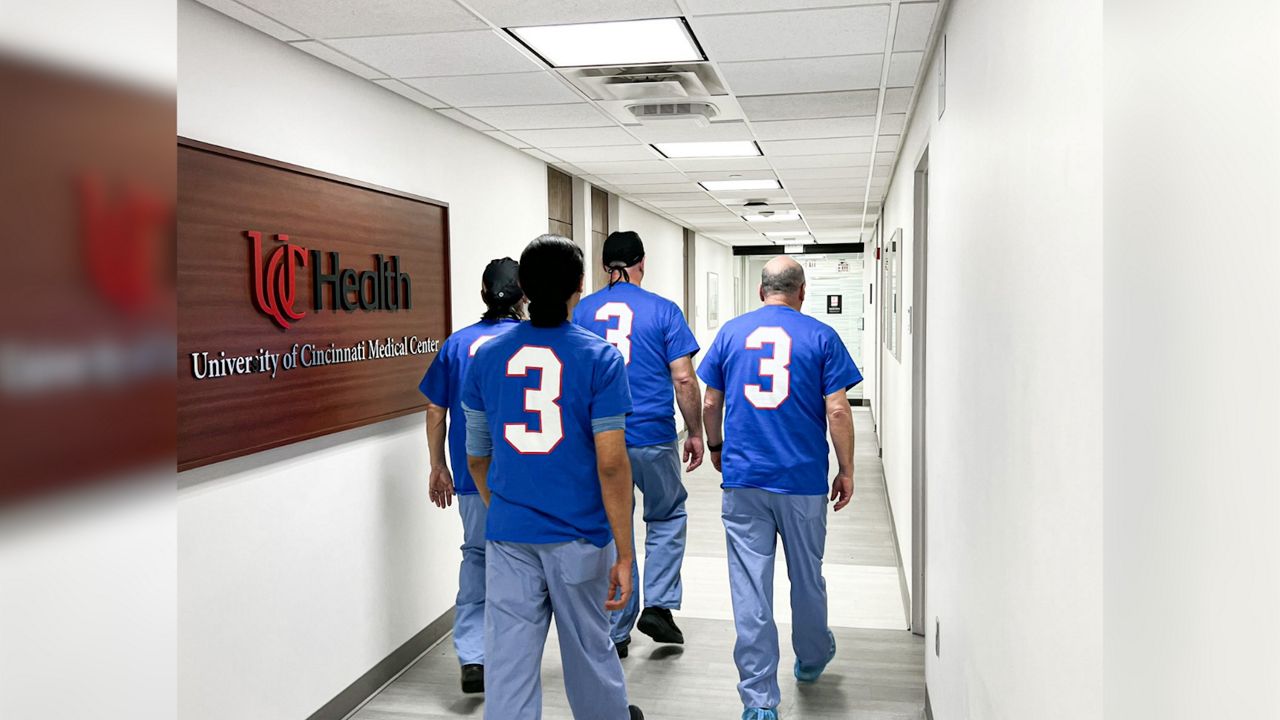ST. LOUIS — A Midwest organization helping women seek abortions has more than doubled its clients in the past six months since the overturn of the U.S. Supreme court ruling Roe v. Wade.
The Midwest Access Coalition (MAC) is a nonprofit formed in 2015 that financially supports Midwesterners who travel for abortion care and helps coordinate travel, lodging and appointments. The nonprofit also helps those traveling to the Midwest for abortion care.
In 2021, the organization had 800 clients, which was a significant increase, according to Alison Dreith, director of strategic partnerships. With the fall of Roe, she said that number had more than doubled in 2022, helping more than 1,600 clients from every state in the Midwest, in addition to 17 states outside the Midwest.
“As soon as Roe fell on June 24, our hotline received four times as many callers as it did the week before,” Executive Director Diana Parker-Kafka said in an end-of-year report. “Suddenly, millions of people in this country had their right to bodily autonomy stolen from them by the bigoted majority of the Supreme Court of the United States. People were scared, including those of us in the abortion access movement.”
Dreith noted that clients were shopping around for their procedures back in November 2021 depending on price “but because so many states and abortion clinics have shuttered their doors or access to abortion care, our clients are now shopping for the earliest appointment available because most clinics are booking two to three weeks out.”
She added that Texans are having to travel to states such as Minnesota instead of Illinois because of appointment availability.
“It’s been a real challenge to assist our clients when they hit on those roadblocks,” Dreith said.
The top five states clients traveled from were Wisconsin, Illinois, Indiana, Ohio and Texas, according to the end of year report.
“It really feels like now most of our clients are Southerners traveling to places like Illinois and Kansas and Minnesota for care. But of course, we are still seeing people in our own area as well. There’s just a lot more resources right now for Midwesterners who need additional support.”
Dreith told Spectrum News one client had to be rescheduled an additional two weeks in advance due to a lack of availability after being turned away at one clinic for being too far along in her pregnancy.
“It’s just causing multiple delays, multiple travel trips and lots of money to get people the care that they need,” Dreith said.
In 2022, MAC spent more than $650,000 in practical support expenses for clients, including $286,000 for hotels, $120,000 for flights, $40,000 for rideshares and $60,000 for gas. Clients went to 58 abortion providers, which was down from 69 in 2021 due to clinic closure after Roe, according to the end-of-year report.
More than 9,000 people donated to MAC last year, and the report lists the organization’s major funders for 2022. Donations from individuals, businesses and small groups provide 70% of the organization’s funds.
“I’m a person who had an abortion in 2016. I was a Missourian at the time, and I knew I didn’t want that care in Missouri, so I opted to go to Illinois, and we’re just seeing so much of that now,” Dreith said.
“The more abortion providers, the merrier. I wish that abortion was a part of regular reproductive health care and something that was provided in all health care settings. There’s no reason why such a safe and routine procedure needs to be some other form of health care that is so stigmatized and hard to get.”
In the 100 days following the fall of Roe, Planned Parenthood of the St. Louis Region and Southwest Missouri (PPSLRSWMO) launched two initiatives to help keep up with the demand of those needing access to abortion and reproductive care.
Its health center in Fairview Heights, Illinois, which is 20 miles from the Illinois-Missouri border, saw a 30% increase in abortion patients in the months following Roe, according to an online press release.
“Abortion appointment wait times went from four days to two and a half weeks, patients from outside the bi-state area (Missouri and Illinois) increased by more than 340%, and patients coming for abortion after 14 weeks gestation increased by over 115%,” the press release states.
The organization created a first Mobile Abortion Clinic that will provide care in the Midwest. The mobile abortion clinic was expected to be on the road in Southern Illinois by the end of last year.
In November, Planned Parenthood expanded its footprint and opened the Rolla Health Center located at 1032 Kingshighway B in Rolla. Patients can access preventative care such as birth control, STI testing and treatment, annual exams, gender-affirming care and vasectomies, according to PPSLRSWMO’s website.
On Friday, Jan. 6, the Illinois House of Representatives voted to increase abortion protection. The bill would “prevent the governor from surrendering a person charged by another state if the offenses are based on providing or receiving health care that is lawful in Illinois, even if it is legal in the other state,” according to the Associated Press.
The bill would also “offer protection for providers of gender-affirming health care, including hormonal treatment and would allow advanced-practice registered nurses and physician assistants to perform abortion procedures that do not require general anesthesia.”
The bill is headed to the Senate and must be approved before going to Gov. J.B. Pritzker’s office.




